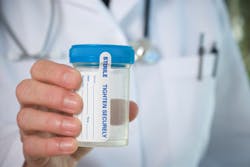Cannabis Abyss: Keeping up with Workplace Drug Testing
With new state and local laws regulating the use of formerly banned drugs, employers must pay careful attention to their drug testing policies or risk costly fines and penalties.
Testing regulations vary state by state, city by city
Drug testing of job applicants and current employees are governed by state and local laws, with the exception of a handful of federally regulated fields, such as the transportation and nuclear industries.
Across the nation, the law regarding employer-mandated drug testing varies widely from one state to another and sometimes even within the boundaries of a state itself. For instance, the cities of Boulder, Colorado and San Francisco have more restrictive drug testing policies than those required by their state’s laws. While other states do not have laws that expressly address drug testing, their courts have interpreted the state constitution or state anti-discrimination laws to prohibit or restrict drug tests in various situations.
To further complicate matters, not all drugs are treated the same, especially as an increasing number of state and local governments are legalizing marijuana for medicinal or recreational use.
Blanket vs. random drug testing
Many states permit private employers to conduct blanket or random drug tests of their employees. A blanket drug test occurs when all employees of a company are tested, whereas a random drug test is given to a limited number of employees chosen by lot. In these states, the employer is not required to provide a reason for the drug test.
Test refusal can be grounds for termination
While an employer cannot force an employee to submit to the drug test, the employer may have grounds to fire an employee who refuses. Some states go a step further and withhold unemployment benefits for employees terminated on the basis of refusing a drug test. Other states ban random drug tests altogether or only permit their use in certain high-risk industries or positions where—for example—impaired performance can jeopardize the safety of the employee, those working alongside him or her, or the wider public.
For instance, Vermont law expressly bans random and blanket drug testing of employees unless federal law provides otherwise. Employers’ failure to comply with this requirement can result in significant civil penalties.
Most states permit drug testing based upon reasonable suspicion. Under this standard, an employee may be required to take a drug test if the employer has reasonable suspicion that the employee is under the influence of drugs. For example, the employer may observe drug use or witness physical symptoms, such as uncoordinated movements, slurred speech, unusual demeanor, and nonsensical answers to questions. The employer may also receive a credible and reliable tip that an employee has bought, sold, shared, or used drugs while on the clock.
Nearly all jurisdictions allow an employee to be tested for drugs after a workplace accident where the facts suggest that the employee was impaired.
Testing job applications
Drug tests are often an issue for job applicants too. Most states allow private employers to require job applicants to undergo drug testing and/or to reject those applicants who refuse to be tested. Generally, the employer must demonstrate a legitimate business purpose for requiring drug tests.
However, some states have placed substantial restrictions on the use of pre-employment drug tests. For example, Maine—which legalized recreational marijuana use by referendum in November 2016—prohibits private employers from testing job applicants for marijuana use and further bars them from terminating employees over the age of 21 who use marijuana outside of the workplace.
Over the summer, Nevada passed a law, which goes into effect on January 1, 2020, which forbids private employers from refusing to hire a job applicant because he or she tested positive for marijuana with limited exceptions for first responders. Similarly, the Rhode Island Superior Court concluded that an employer had violated the state’s medicinal marijuana law when it refused to hire an otherwise qualified candidate solely because she stated she would test positive for marijuana use.
As more states have legalized marijuana for medicinal or recreational use, the number of companies utilizing drug tests, particularly for marijuana, has begun to decline and that trend shows no sign of abating even in states with relatively lax requirements. Some employers have simply found that the expense of drug testing job applicants outweighs the benefit, especially when unemployment is very low and companies are struggling to recruit qualified workers. Others are concerned about inadvertently running afoul of the expanding reach of state anti-discrimination laws.
One thing is for certain—the landscape for drug testing in the workplace will continue to evolve. Savvy employers will need to pay close attention to these shifts to remain compliant.
________
Joshua S. Bauchner, Esq. is a shareholder with the firm of Ansell Grimm & Aaron, PC, where he serves as Co-chair of the Litigation Department and head of the Cannabis Law Practice. Rahool Patel, Esq. is an attorney who focuses his practice in the areas of labor and employment law and commercial litigation.
About the Author
Joshua S. Bauchner
Shareholder
Joshua S. Bauchner, Esq. is a shareholder with the firm of Ansell Grimm & Aaron, PC, where he serves as co-chair of the Litigation Department and head of the Cannabis Law Practice Group.
Rahool Patel, Esq.
Attorney
Rahool Patel, Esq. is an attorney at Ansell Grimm & Aaron, PC who focuses his practice in the areas of labor and employment law and commercial litigation.
